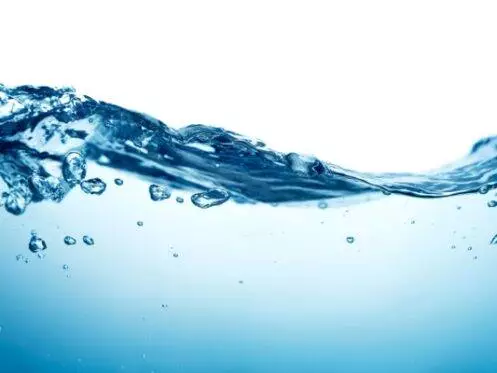About 70% of the earth’s surface is covered in water, and 97% of that is salt water. The remaining 3% is freshwater; two-thirds of that is frozen in glaciers or otherwise unavailable for human use. That leaves only 1% of the world’s water available for us to use. Water is classified as hard or soft depending on the number of dissolved minerals it contains.

What Is Hard Water?
Hard water contains high amounts of dissolved minerals, such as calcium, magnesium, and iron. These minerals are typically found in rocks and soil and can end up in your water supply through leaching. When hard water runs through pipes, it can leave behind deposits of these minerals. Over time, these deposits can build up and cause problems with your plumbing.
There are two types of hard water: temporary and permanent.
Temporary hard water occurs when bicarbonates dissolve in water. It usually happens when water comes into contact with limestone or other rocks. The bicarbonates make the water alkaline, raising the pH level and causing skin irritation. However, these effects are temporary and will disappear once the water is no longer in contact with the rocks.
Permanent hard water occurs when sulfates, chlorides, and nitrates dissolve in water. These minerals come from the soil and cannot be removed by boiling or filtering the water. Permanent hard water can hurt your health if you drink it over an extended period. It can also damage your plumbing and appliances.
What Is Soft Water?
Soft water is water that contains a low amount of dissolved minerals. The majority of public water supplies are considered to be soft water. Soft water is easier on plumbing because it doesn’t leave behind mineral deposits. It’s also better for laundry and dishes because it doesn’t cause soap to form scum.
How Hardness Is Measured
Water hardness is typically measured in grains per gallon (gpg) or milligrams per liter (mg/L). Water with a hardness of 1 gpg or less is considered soft, while water with a hardness of over 7 gpg is considered hard.
You can tell if you have hard water by looking for these signs.
Soap Scum
When hard water mixes with soap, it forms a sticky film called soap scum. Soap scum can build up on fixtures and laundry machines, making them less effective.
Stiff Clothes
Hard water makes it difficult for the detergent to work properly. As a result, your clothes may come out of the wash feeling stiff and grimy.
Spotty Dishes
Have you ever noticed spots on your dishes after they’ve been washed? That’s because hard water prevents dishwashing detergent from fully rinsing away.
If you suspect you have hard water, you can have your water tested by our experts at Travis & Sons Plumbing & Rooter.
The Effects Of Hard Water
Hard water can cause a variety of problems in the home. These problems are typically related to plumbing and appliances.
Washing Machines
Over time, the mineral deposits left behind by hard water can damage washing machine components, such as hoses and pumps. This can lead to leaks and decreased efficiency.
Dishwashers
Hard water can also cause problems for dishwashers. The mineral deposits can build up on dishes and cause them to become dull. Dishwashers may also have decreased efficiency due to using more detergent to clean hard water.
Water Heaters
The mineral deposits left behind by hard water can also build up in water heaters. This can lead to decreased efficiency and, eventually, the need to replace the water heater.
Plumbing
Hard water can cause various problems, such as decreased water pressure, clogged pipes, and leaks.
Skin and Hair
Hard water can cause skin irritation and dryness. It can also make hair feel straw-like and difficult to style.
How To Treat Hard Water
Chemical treatment is one of the easiest ways to deal with hard water. This involves adding chemicals such as lime or sodium carbonate to raise the pH level of the water. It makes the water less corrosive and less likely to cause damage to plumbing.
Another option is to install a water softener. A water softener works by exchanging the minerals in hard water for sodium ions. This process is known as ion exchange. Water softeners can be installed at the point of entry, where water comes into your home, or at the point of use, where you need soft water.
Dealing with hard water can be a daunting task. But with the right water treatment, you can keep your home and appliances safe from the damaging effects of hard water.
If you are concerned about the hardness of your water, don’t hesitate to reach out to Travis & Sons Plumbing & Rooter. Our plumbing experts will help install a new water purification system in your Fountain Hills, AZ, home, ensuring that you and your family have access to clean, safe water. Our plumbers have a wealth of experience in water softening, water heaters, reverse osmosis systems, and more.
Contact us today and learn more about our plumbing services.
